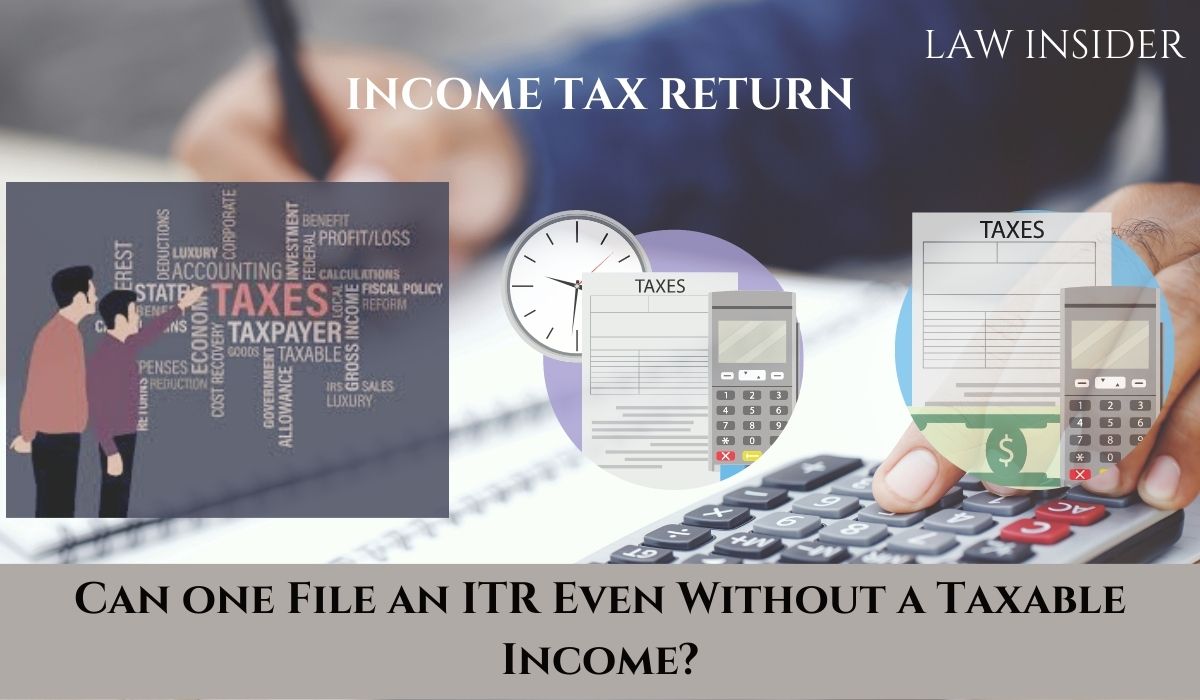By Dr. Anup K Tiwari
Published on: 19 July 2023 at 18:57 IST
Introduction:
Many salaried individuals who do not have any tax liability believe that they are not required to file an Income Tax Return (ITR). However, it is important to note that individuals below the age of 60 are obligated to file ITR if their gross total income exceeds Rs 2.5 lakh in a fiscal year, regardless of whether they have any tax liability or not. This article aims to dispel the misconception surrounding this matter and shed light on the advantages of filing an ITR, even for individuals without taxable income.
Advantages that come with filing an ITR, even with no tax liability:
1. Claiming Refunds:
In certain situations, individuals with an income below the taxable limit may still have taxes deducted at source (TDS) by their employers or from freelance work. By filing an ITR, they can claim a refund for the TDS deducted. This ensures that individuals receive the rightful amount back from the government.
For example, if you earned income through freelance work and the company deducted TDS at 10 percent, but your overall income falls below the taxable threshold, filing an ITR allows you to claim a refund for the TDS deducted.
2. Planning to Go Abroad:
Filing ITR is crucial for individuals planning to travel abroad, as many countries require a history of filed tax returns as part of the visa application process. Having a record of filing ITR improves your chances of visa approval and strengthens your case as a responsible taxpayer.
By not filing an ITR, you may encounter difficulties in obtaining a visa or face delays in the application process due to the absence of this important document.
3. Tax Refund and Loss Set-Off:
Filing ITR becomes essential when seeking tax refunds or when carrying forward losses to future years. Even if your annual income falls below the taxable threshold, if you have suffered losses, such as from stock market transactions, and wish to offset them against future gains, filing an ITR is necessary.
By filing an ITR, individuals can claim tax refunds or carry forward losses to subsequent years, ensuring they make the most of their financial situation.
4. Loan Applications:
When applying for loans, financial institutions often require copies of your tax returns. They may request your salary slips showing deductions, TDS certificates, and copies of your Income Tax Returns from the last two years. Submitting your ITR receipts can be advantageous in case your loan application is at risk of rejection or if you are unsatisfied with the loan amount offered.
Having a record of filed ITRs strengthens your credibility as a borrower and provides the necessary documentation for lenders to assess your financial stability.
Conclusion:
Even if you fall below the taxable income threshold, it is beneficial to file an ITR. By doing so, you can claim tax refunds, improve your chances of obtaining visas, carry forward losses, and enhance your loan application prospects.
Filing an ITR demonstrates your financial responsibility and prudence, ensuring that you make the most of the available opportunities and benefits. Therefore, irrespective of your tax liability, it is always advisable to invest in filing an ITR and secure your financial future.

